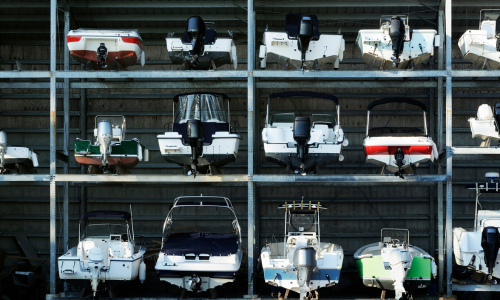How Much Does Boat Insurance REALLY Cost? You Won’t Believe the Truth

When it comes to boating, one of the first questions many boat owners ask is: How much does boat insurance really cost? The answer isn’t as straightforward as you might think. While some assume that boat insurance is an expensive luxury only for yacht owners or commercial vessels, others believe it’s unnecessary, especially for smaller boats or personal watercraft. In reality, the cost of boat insurance can vary significantly based on a wide range of factors, from the type of boat you own to how often you use it.

There’s a common misconception that boat insurance is either too cheap to matter or so expensive that it’s just not worth it. In the first camp, you might think a small, infrequently used boat doesn’t require much coverage, but that could leave you exposed to unexpected expenses. On the other hand, if you’re under the impression that boat insurance is just for the rich and famous, think again—it’s actually more affordable than you might expect, especially for smaller vessels, and it could save you thousands in the event of an accident or theft.
This blog aims to clear up these myths and provide you with an honest, in-depth look at what goes into the cost of boat insurance. We’ll break down the factors that influence premiums, explain why the price can vary so much, and help you understand how to get the right coverage for your budget. Whether you’re a first-time boat owner or a seasoned sailor, by the end of this post, you’ll have a clearer picture of what boat insurance really costs and why it’s essential to have it in place before hitting the water.
The Basics: What Determines Boat Insurance Costs?
When it comes to determining the cost of boat insurance, several key factors play a significant role in shaping the premium you’ll pay. Understanding these factors will give you a clearer picture of why insurance costs vary from boat to boat and how you can make informed decisions about your coverage. Let’s dive into the most important aspects that affect your boat insurance costs:
Boat Type and Size
The type of boat you own is one of the first things an insurer will consider when calculating your premium. Different boats come with different risks, and insurance companies base premiums on the likelihood of accidents, damage, and the cost to repair or replace your boat. Here’s how it breaks down:
- Sailboats: Typically cost less to insure than powerboats due to lower speed and fewer mechanical parts. However, larger sailboats or those used for racing can increase costs.
- Powerboats: These tend to have higher premiums, especially if they’re large, fast, or used frequently for activities like waterskiing or wakeboarding. The higher the engine power and speed, the higher the risk.
- Personal Watercraft (PWCs): Jet skis, wave runners, and similar vessels are typically cheaper to insure, though they are more prone to accidents, which can bump up premiums.
- Yachts: High-end yachts, especially luxury models, require specialized insurance and can be much more expensive to insure due to their high replacement costs and complex systems.
Boat Value
The value of your boat is one of the most obvious determinants of your insurance premium. Simply put, the more expensive your boat is to repair or replace, the more you’ll pay in premiums. Whether your boat is brand new or used, the value will be taken into account.
- New Boats: A new boat with a high market value will have a higher premium because it costs more to repair or replace if damaged.
- Used Boats: Older boats are typically cheaper to insure, but the condition of the boat and its maintenance history can influence rates. A well-maintained older boat might have a lower premium than a neglected newer one.
Location
Where you live—and where you primarily use your boat—also impacts your insurance premium. Geographic factors influence the risk associated with your boat’s operation:
- Hurricane-Prone Areas: If you live in a coastal area or a region prone to hurricanes, you can expect higher premiums due to the increased risk of weather-related damage.
- Boating Hotspots: Popular boating areas with heavy traffic, such as large lakes or popular coastal regions, can increase the likelihood of accidents, theft, or vandalism, which will drive up the cost of insurance.
- Storage Location: Where you keep your boat when not in use (e.g., a marina, private dock, or storage facility) can also affect your premiums. Storing your boat in a safe, secure location may lower your insurance costs, whereas storing it in a high-risk area can raise them.
Usage
How often and for what purpose you use your boat plays a significant role in the cost of your insurance. The more frequently and actively you use your boat, the higher the risk for accidents, which can drive up premiums.
- Recreational Use: Occasional weekend use for leisure boating or fishing is generally considered low risk and tends to be cheaper to insure.
- Commercial Use: If you use your boat for commercial purposes, such as a charter service, fishing business, or transporting passengers, the risks are higher, and so will be your premium.
- Watersports and Racing: Boats used for waterskiing, wakeboarding, or other high-impact activities tend to incur higher premiums due to the increased chance of damage or injury. Similarly, if you plan to race your boat, expect to pay more for insurance.


